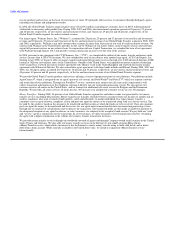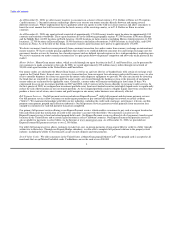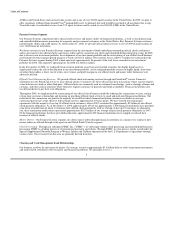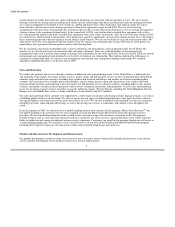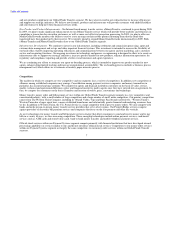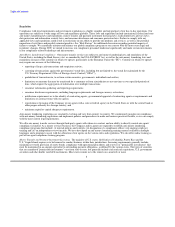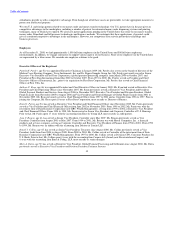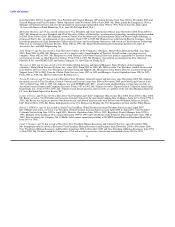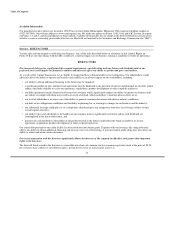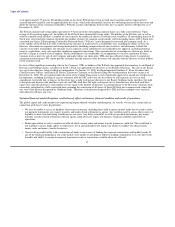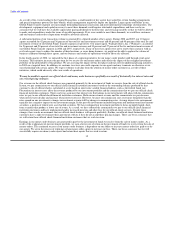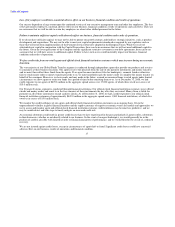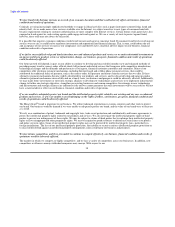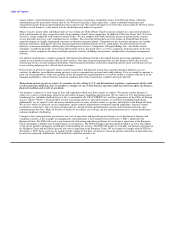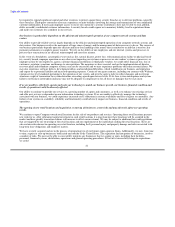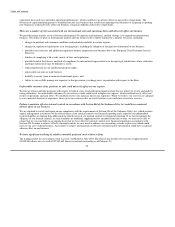MoneyGram 2008 Annual Report Download - page 16
Download and view the complete annual report
Please find page 16 of the 2008 MoneyGram annual report below. You can navigate through the pages in the report by either clicking on the pages listed below, or by using the keyword search tool below to find specific information within the annual report.
Table of Contents
us of approximately 79 percent. Dividends payable on the Series B Stock have been accrued since inception and are expected to be
accrued and not be paid in cash for approximately five years, which will substantially increase the ownership interest of the Investors and
dilute the interests of the common stockholders. With the accrual of dividends, the Investors have an equity interest of 80 percent as of
December 31, 2008.
The B Stock initially had voting rights equivalent to 9.9 percent of the outstanding common shares on a fully converted basis. Upon
receipt of all regulatory approvals, the holders of the B Stock have attained full voting rights. The holders of the B Stock vote as a class
with the common stock and have a number of votes equal to the number of shares of common stock issuable if all outstanding shares of B
Stock were converted into common stock plus the number of shares of common stock issuable if all outstanding shares of B-1 Stock were
converted into Series D Participating Convertible Preferred Stock ("D Stock") and subsequently converted into common stock. As a
result, holders of the B Stock are able to determine the outcome of matters put to a stockholder vote, including the ability to elect our
directors, determine our corporate and management policies, including compensation of our executives, and determine, without the
consent of our other stockholders, the outcome of any corporate action submitted to our stockholders for approval, including potential
mergers, acquisitions, asset sales and other significant corporate transactions. This concentration of ownership may discourage, delay or
prevent a change in control of our Company, which could deprive our stockholders of an opportunity to receive a premium for their
common stock as part of a sale of our Company and might reduce our share price. THL also has sufficient voting power to amend our
organizational documents. We cannot provide assurance that the interests of the Investors will coincide with the interests of other holders
of our common stock.
In view of their significant ownership stake in the Company, THL, as holders of the B Stock, has appointed four members to our Board of
Directors and Goldman Sachs, as holders of the B-1 Stock, has appointed two observers to our Board of Directors. The size of our Board
was set at nine directors, three of which are independent. On January 21, 2009, the Board appointed Anthony P. Ryan, President and
Chief Executive Officer, and Pamela H. Patsley, Executive Chairman, to the Board, filling two board positions that were vacant as of
December 31, 2008. We are required under the terms of the Capital Transaction to seek shareholder approval to amend our Certificate of
Incorporation, including the filing of a proxy statement with the SEC and to use our best efforts to solicit proxies in favor of such
amendment, to provide that, as long as the Investors have a right to designate directors to our Board, Goldman Sachs shall have the right
to designate one director who shall have one vote and THL shall have the right to designate two to four directors who shall each have
equal votes and who shall have such number of votes equal to the number of directors as is proportionate to the Investors' common stock
ownership, calculated on a fully-converted basis assuming the conversion of all shares of Series B Stock into common stock, minus the
one vote of the director designated by Goldman Sachs. Therefore, each director designated by THL will have multiple votes and each
other director will have one vote.
Sustained financial market disruptions could adversely affect our business, financial condition and results of operations.
The global capital and credit markets are experiencing unprecedented volatility and disruption. As a result, we may face certain risks in
connection with these events. In particular:
• We may be unable to access or liquidate short-term investments, including those held in money market funds that we need to settle
our payment instruments, pay money transfers and make related settlements to agents. Any resulting need to access other sources of
liquidity or short-term borrowing would increase our costs. Any delay or inability to settle our payment instruments, pay money
transfers or make related settlements with our agents could adversely impact our business, financial condition and results of
operations.
• Banks upon which we rely to conduct our official check, money order and money transfer businesses could fail. This could lead to
our inability to access funds and/or to credit losses for us and could adversely impact our ability to conduct our official check,
money order and money transfer businesses.
• Our revolving credit facility with a consortium of banks is one source of funding for corporate transactions and liquidity needs. If
any of the banks participating in our credit facility were unable or unwilling to fulfill its lending commitment to us, our short-term
liquidity and ability to engage in corporate transactions such as acquisitions could be adversely affected.
13


